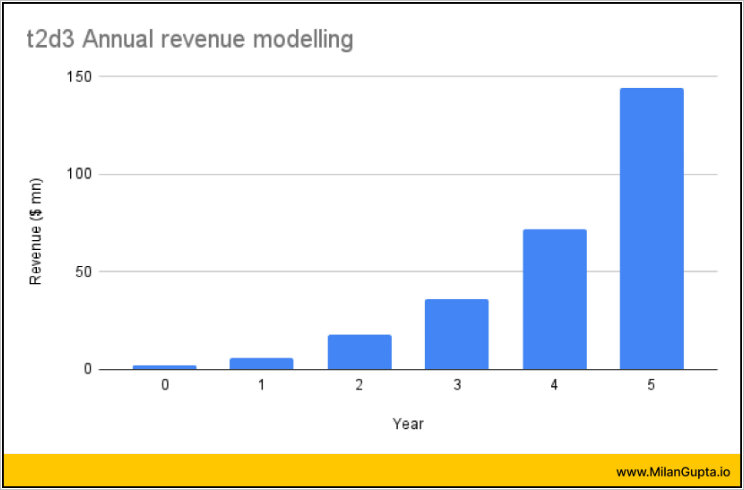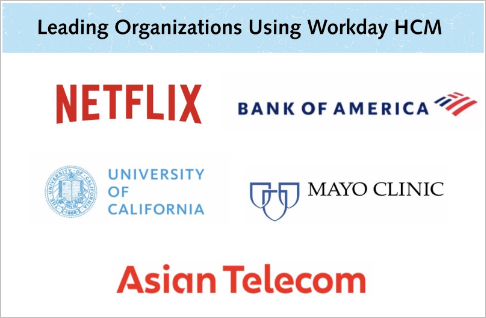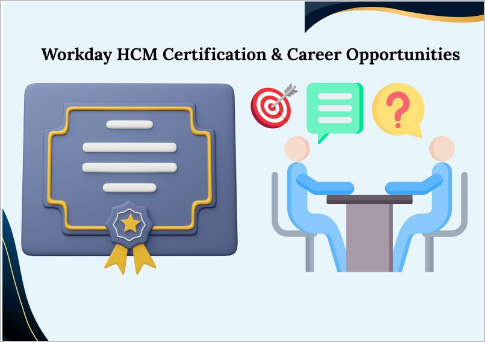What is Workday HCM: Features, Benefits & Key Modules Guide

Explore Workday HCM in depth. You will learn about its features, benefits, and the key modules that streamline and transform human capital management.
Table of Contents
- The Increasing Popularity of Workday HCM
- What is Workday HCM?
- Why Workday HCM Matters in HR?
- Who Should Use Workday HCM?
- Challenges Workday HCM Solves
- Features of Workday HCM
- Modules in Workday HCM
- Key Benefits of Workday HCM
- Use Cases of Workday HCM
- Workday HCM vs Competitors
- How Workday HCM Integrates with Other Systems
- Implementation Considerations & Best Practices
- Companies Using Workday HCM
- Workday HCM Certification & Career Opportunities
- Future of Workday HCM
- How ERP Cloud Training Can Help You
- Conclusion
- FAQ
The Increasing Popularity of Workday HCM
In the present era of a digital-first HR landscape, several companies across industries are increasingly modernizing their workforce management processes. Among the leaders in this transformation is Workday Human Capital Management (HCM) - a highly advanced cloud-based software suite that has strongly redefined how enterprises manage their workforce.

Workday HCM Adoption Growth (2015–2025)
https://www.milangupta.io/blog/t2d3-growth-framework/
Data Source: Workday Blog
The above graphic represents the consistent upward adoption trend of Workday HCM, based on available data points & projections. While graphic details are illustrative, they reflect the expanding presence of Workday:
2015–2020 – It has been noticed that there is a rapid early adoption among Fortune 500 companies.
2020 - Adoption rate had crossed approximately 45% of the Fortune 500 Newsroom | Workday Morningstar.
2023 – Workday had served over 50% of Fortune 500 and more than 25% of the Global 2000 Workday.
2025 - Workday continued to grow, arguably reaching 60% & higher.
The facts that are analysed from the above graphic underscore how Workday HCM is more than just software – it is becoming the industry-standard for HR innovation & leadership. It is escalating adoption among the largest enterprises of the world and is showing growing relevance & trust in enabling workforce transformation.
What is Workday HCM?
Workday HCM, the short form for Workday Human Capital Management, is a cloud-based solution that is strategically designed to facilitate progressive business organizations to manage their complex HR processes very efficiently. It largely encompasses a suite of modules that support everything from recruiting & onboarding to payroll, talent management, workforce planning, & learning.
Unlike a range of traditional on-site HRMS tools, Workday HCM offers the right level of agility, a unified data model, real-time insights, & a seamless user experience - all integrated in a single cloud platform.
Why Workday HCM Matters in HR?
HR is no longer about hiring people and pushing papers — it’s about the future of the workforce. Workday HCM is the spine of the future digital workplace.
Flexible Decision-Making
Enables Data-Driven Workforce Strategies
Offers Personalized Employee Experiences
Ensures Global Compliance & Scalability
Enhances Engagement & Retention
Seamless Integration Across Functions
Future-Proofs HR with Innovation
HR leaders can access actionable intelligence through live insights and ad hoc dashboards. Whether ramping up teams or reprogramming resources, agility is part and parcel of everything we do.
Analytics using AI predict talent needs, turnover trends, and performance results. These evidence-based approaches help organizations get ahead of the future instead of being reactive to it.
Staff get personalized learning journeys, career tools, and self-service capabilities. This customization encourages and increases retention.
For global enterprises, Workday provides a consistent way to harmonize HR processes and meet local obligations. With a cloud-based architecture, the company easily scales with businesses.
Performance, feedback, and learning are all housed in a single Workday ecosystem. It helps employees to feel motivated and valued by encouraging continuous development.
Workday connects human resources with finance, payroll, and operations. Workday is breaking down the silos. This deep integration results in better cross-functional cooperation and alignment.
Regular improvements in AI, automation, and machine learning can leave organizations well in front of technological turns. Workday prepares HR for challenges of tomorrow.
Workday HCM isn’t just another HR system; it’s a breakthrough software for managing human resource data, now and into the future. Through agility, compliance, personalization, and innovation, it enables HR to be a strategic influence on the future of business growth and workforce success.
Who Should Use Workday HCM?
Scalability & Global Workforce Management
Compliance, Security & Industry Fit
Workday HCM enables midsize to large companies, multinational organizations, and global businesses to reinvent HR tasks such as payroll, benefits, and compliance. Its cloud-native architecture scales as businesses grow. This allows fluid management of staff across multiple teams and countries.
For businesses where downtime is not an option—such as healthcare, financials, and the public sector—Workday’s unified compliance, security, and audit coverage is the solution of choice.
Challenges Workday HCM Solves
Several business organizations often struggle with:
Disconnected HR systems
Inaccurate data on employees
Inefficient onboarding & recruitment workflows
Limited workforce insights
A range of compliance risks
Workday HCM solves all the above challenges with the right automation, integration, & unified data.
Features of Workday HCM
Workday HCM invariably stands out due to its modern, cloud-native architecture & also feature-rich ecosystem that has efficiently simplified & enhanced workforce management. The following are the key features of Workday HCM:
Unified HR Platform - Workday HCM offers a single integrated system for conducting and centrally managing all core HR tasks - from recruitment to retirement. In the process, the chances of data silos are eliminated, and accuracy is improved.
Availability of Real-Time Data & Real-Time Reporting – Workday HCM delivers real-time workforce insights as well as custom reports that strongly facilitate leaders to make data-driven decisions, and that too instantly.
Mobile-First Accessibility – This platform is well-designed to suit the needs of the modern workforce. The intuitive mobile interface of Workday allows users to manage all their important HR tasks, various approvals, & insights from anywhere, & anytime.
Compliance-Ready Workflows – There are built-in regulatory updates as well as localized compliance tools that strongly ensure all your HR processes stay perfectly aligned with all the prevailing global as well as regional labor laws.
AI-Powered Talent Insights - Workday leverages machine learning in order to recommend aspects like skill development, career growth paths, & talent retention strategies based on various real-time analytics. Through Workday Training, HR leaders can better understand and apply these AI-driven insights.
Modules in Workday HCM
Core HR
The module of Workday Core HCM essentially includes useful techniques of handling personal data, employment history, job profiles, as well as organizational structure. It enables HR teams to manage the global workforces efficiently.
Talent Management
This particular module enables business organizations to track employee goals, performance, & career progression. It provides certain tools for the purposes of succession planning & development.
Payroll
The payroll module of Workday successfully automates tax calculations, processing of payments, & payroll reporting. It integrates with the third-party tax engines & finance tools.
Time Tracking
Built-in time clocks, shift tracking, & geolocation support make this particular module very essential for compliance tracking and hourly employees.
Compensation
It automates compensation planning, including salary adjustments, bonuses, & incentives well-aligned with the performance of the employees & market benchmarks.
Learning
A modern Workday LMS (Learning Management System) is a crucial Workday HCM module that supports aspects like content authoring, compliance training, mobile access, & e-learning.
Recruiting
This module simplifies the entire cycle of recruitment – right from job requisitions to candidate screening & onboarding. AI helps match job seekers with the roles.
Workforce Planning
The module of Workforce planning teaches scenario-based planning & forecasting. It helps HR leaders to efficiently visualize workforce gaps & plan future talent requirements to a large extent.
Reporting & Analytics
This particular module provides advanced dashboards, custom reports, & predictive analytics. HR teams can easily track KPIs like attrition, diversity, & performance.
Key Benefits of Workday HCM
The notable benefits of Workday HCM are:
A single source of truth for workforce insights
Built-in global compliance at scale
Automating and being agile in our drive for efficiency
Empowering employees with consumer-like experiences
The only intelligence for strategic workforce planning in real-time
Scalable architecture for future growth
Creating a culture of growth and retention
Rather than having multiple systems, Workday HCM puts all employee information in one location. This has not only enhanced accuracy but has provided leaders with an overall view of the workforce, meaning questions are able to be answered quickly, in an evidence-based manner. You can also take a Workday HCM Tutorial, which can also provide more insight into how to make use of this unified data source.
For companies that operate across borders, compliance turns into a moving target. Workday takes the complexity out of this by providing automatic updates based on local labor laws, tax requirements, and data privacy rules–minimizing risks and saving HR teams from the burden of having to manually monitor this themselves.
The 'cloud native' party line is that Workday HCM transforms onboarding, payroll, and performance review. "Environments change, and when you automate by using software... You can make those changes rather trivial to address from a system administrator's perspective.
Workers today want technology in the workplace to look and feel like the apps they use every day. Workday offers consumer-friendly self-service, Mobile access, and role-based, self-service dashboards that increase engagement and empower employees to take charge of their own HR needs.
Workday takes a step beyond reporting to deliver predictive analytics and scenario planning. Model workforce costs and proactively align talent strategies with business goals.
As our business grows, so does Workday—whether we’re expanding into new countries, establishing new business units, or growing our team. This scalable investment helps preserve the system as a long-term asset, not a quick fix.
With ongoing feedback, career pathing, and intelligent learning tools, Workday aims to develop employees within the business. This enhances retention, drives internal mobility, and lowers the cost of churn — all of which give companies competitive edge in the talent market.
Use Cases of Workday HCM
Multinational Finance Firm – HSBC
Unifies HR processes for the cloud to ensure compliance, manages payroll across countries, and saves time.
Retail Chain – Walmart
Trains and upskills employees across thousands of stores.
Provides regular training programs to enhance service and compliance.
Tech Start-up – Spotify
Scales global hiring to match rapid growth.
Decreased the time to hire by cutting recruitment processes.
Workday Product Implemented: Workday HCM & Global Payroll
Purpose:
Workday Module Used: Workday Learning
Purpose:
Workday Module Used: Workday Recruiting
Purpose:
Workday HCM vs Competitors
| Feature | Workday HCM | SAP SuccessFactors | Oracle HCM | BambooHR |
| Unified HR + Finance | Yes | No | Yes | No |
| Real-time Reporting | Yes | Yes | Yes | No |
| AI-Powered Insights | Yes | Yes | Yes | No |
| Mobile-First UX | Yes | Yes | Yes | Yes |
| SMB Friendly | NA | No | No | Yes |
How Workday HCM Integrates with Other Systems?
Workday offers a highly robust API & connectors to integrate with:
Financial systems
CRMs (Salesforce)
Learning platforms (LinkedIn Learning)
Payroll engines (Paychex, ADP)
Third-party tax
Implementation Best Practices
1. Conduct stakeholder alignment
Getting all stakeholders aligned together helps ensure that everyone in the business, HR, IT, and end users have the same vision of the Workday HCM. Aligning early prevents conflicts, helps to set clear goals, and establishes accountability on both ends. This is the step that prepares for successful implementation, and Workday HCM Training can further support stakeholders in understanding the system and aligning with its capabilities.
2. Choose the right implementation partner
The decision of choosing the right Workday implementation partner is critical. A trusted partner brings best practices, proven methodologies, and domain expertise that get solutions into operation faster and with fewer risks. They also assist in bringing Workday into closer alignment with your organization’s own idiosyncrasies.
3. Follow a particular staged rollout pattern
Through phased rollouts of Workday HCM, instead of a big-bang approach, companies can test, fine-tune, and change. By beginning with critical modules, it becomes possible to achieve early wins and easier adoption. It also avoids havoc and spreads the learning curve.
4. Emphasis on change management & training.
Effective change management and hands-on training empower users to adopt new procedures. A high level of communications and ongoing assistance is a selling point for user uptake.
5. Monitor KPIs post-launch
The company’s implementation journey is not over at go-live – KPIs keep you clued in to whether the system is providing value. Tracking KPIs such as user adoption, process efficiency, and data quality brings attention to areas needing improvement. Periodic checks maintain that Workday remains in step with business objectives.
Companies Actively Using Workday HCM

Netflix
Bank of America
Southeast Asian Telecom Giant
• Unified HR & Finance Platform
Netflix went with Workday HCM in March 2011—and then expanded to its other modules, Expense Management, Financial Management, and Procurement—preferring an all-in-one, easy-to-use system to juggling several on-premises tools.
• Workday Extend app extensions with customized workflows
Netflix used Workday Extend to create custom applications such as an External Supplier PO Request app (in less than 10 weeks!), as well as automating key procurement workflows and reducing dependence on spreadsheets (Workday).
• Onboarding & Resource Management Apps
There were apps for requisitioning jobs, a request form for internal purchase orders, inventory management, new-hire setup, probation forms, and even tracking of stock options allocation – transforming the way onboarding and HR operate (Workday Blog).
• Payroll Integration
By adopting Workday Payroll combined with HCM and financials, Netflix was able to auto-create journal entries, simplify payroll, and minimize transactional work while scaling (Workday).
• Centralized HR and the Employee Experience
Workday allowed Bank of America to centralize HR functions, such as payroll, benefits and performance reviews. With easy and intuitive self-service capabilities for employees to request time-off and access their personal data and other information.
HR transformation achieves cost savings: Replaced on-premises legacy systems with Workday HCM—decreasing payroll cycle times by 60 percent and the amount of time needed for onboarding from weeks to days. Advanced analytics revealed an additional 10% of hidden labor costs.
All of these leading brands use Workday for workforce agility, data-driven HR decisions, & compliance.
Workday HCM Certification & Career Opportunities

Workday offers certifications like:
1. Workday Core HCM
These credentials are a validation that the candidate has the fundamental knowledge of running Workday’s HCM. It includes basic HR functions, including employment—administrative design—compensation, and organizational process. A Workday HCM Certification is an attestation to this skill set, and increases job prospects.
2. Workday Recruiting
Recruiting certification: Workday’s end-to-end talent acquisition capabilities are the primary focus for the Recruiting certification. It educates you regarding how to create job requisitions, manage candidates, and automate your hiring workflows. This means that companies can source, assess, and hire the best talent in the most effective way.
3. Workday Integration
This certification is for integration developers who design, build, and maintain integrations between Workday and external systems. Includes tools such as Workday Studio, the EIB, and web services.
4. Workday Payroll
The Payroll certification focuses on the administration of the payroll process in Workday.
Professionals with Workday HCM Training can pursue roles like the following:
1. Workday Functional Consultant
A Workday Functional Consultant plans, designs, configures, tests, and deploys Workday HCM applications.
2. HCM Analyst
The HCM Analyst provides support for ongoing HR system functions, reporting, and issue resolution in Workday. They use workforce analytics, provide assistance in compliance reporting, and help maintain correct employee records. Their learnings guide HR leaders in making data-based choices.
3. Workday Integration Developer
This position will be responsible for integration development and maintenance for Workday integrations with other business applications (payroll, benefits, ERP, etc). They leverage Workday Studio, EIB, and APIs for easy information retrieval. Their expertise is what keeps systems linked and efficient.
4. HRIS Manager
The HRIS Manager takes care of the HR tech stack as the brainchild of the system, and Workday serves as the core. They are front-runners in system modernization, governance, and security, all based on maintaining the integrity of data. They also oversee all analysts and consultants and HR systems, and strategy.
Salaries of certified Workday professionals range from $90K to $160K+, depending on their experience & location.
Future of Workday HCM
Workday has been perpetually continuing to lead numerous innovations. Some of the recent advancements covered in a Workday HCM Course are the following:
1. AI-driven recommendations
Workday uses AI to recommend tailored learning, next career move, and skill paths for employees. This results in more intelligent talent management where employee development is in line with organizational requirements.
3. Enhanced mobile accessibility
Workday is continuing to develop a mobile-first design by enabling employees and managers to do HR tasks. This flexibility drives higher engagement and business continuity for hybrid work.
4. Global workforce inclusivity tools
Workday is building features that promote diversity, equity, and inclusion for global teams. They don’t just help companies pick who to hire, keep, or promote, they also contribute to a more inclusive work environment through unbiased hiring, cultural add, and fit.
Workday HCM is expected to evolve continually, in the present times, and prove to be the backbone of intelligent, people-first organizations.
How ERP Cloud Training Can Help You
At ERP Cloud Training, we offer:
A series of real-time project-based Workday HCM courses
Intensive instructor-led & self-paced options
A thorough resume & interview guidance
Guidance for certification exam preparation
No matter if you are an IT leader or a career switcher, our Workday HCM training can considerably elevate your career path.
Conclusion
Workday HCM is a technologically advanced cloud-based software that is far superior to a traditional HR system. It is a highly transformative platform that efficiently unifies various aspects like workforce management, drives numerous data-backed analytical decisions, & also scales effortlessly with the growth of the businesses.
With its very powerful features, AI-driven insights, & seamless integrations, it empowers several progressive business organizations to streamline operations while enhancing employee experiences seamlessly. As its adoption continues to rise among global enterprises, mastering Workday HCM skills is not just valuable – it is a strategic career move for HR as well as IT professionals who are aspiring to be leaders in their field of work in the future.
Categories: : Workday HCM Training
Frequently Asked Questions
Is Workday an HCM or ERP?
Workday is both - it offers Workday HCM for HR functions & Workday Financials for finance.
What is HCM in Workday?
HCM stands for Human Capital Management, covering all the aspects of workforce planning, management, & development.
What is Workday HCM Pro?
Workday HCM Pro is an enhanced version with several additional tools like People Experience & AI-driven insights.
What does the HCM stand for?
HCM stands for Human Capital Management, which is a modern term for HR.
Is Workday & SAP HCM the same?
No. Workday is cloud-native with a unified architecture, while SAP SuccessFactors is a cloud extension of SAP’s traditional HR system.
Is Workday HCM tough to learn?
With the right guidance & training, Workday HCM is certainly a beginner-friendly subject to study, especially through well-structured certification programs.
Are you all set to master Workday HCM?
Now is the time to start your journey with ERP Cloud Training & become a certified Workday expert.
Article written by
Mary is a globally recognized ERP and Workday expert, and the founder of ERP Cloud Training, with over 30 years of ERP implementation experience and 17+ years specializing in Workday. As a functional and technical subject matter expert, she was part of the original Workday design team and has led enterprise-wide deployments across 40+ modules, including HCM, Finance, Payroll, Recruiting, and Integrations, in collaboration with top-tier firms such as IBM, Accenture, PwC, KPMG, and Alight.
Mary is also a prolific Workday blog author, dedicated to sharing her decades of hands-on experience through insightful, real-world content. Her writing dives deep into critical and often-overlooked Workday topics—many of which have never been formally taught or published. By translating complex implementation lessons into practical blog content, she enables professionals and learners to gain industry-ready knowledge far beyond textbooks or theoretical guides.
Her passion for writing stems from a desire to pass on her 30+ years of wisdom to the next generation of Workday practitioners. Mary continually upskills herself with the latest Workday innovations and trends, ensuring her blogs reflect the most current, actionable insights in the field. As a featured speaker at Workday conferences, she shares implementation strategies, problem-solving techniques, and emerging best practices drawn directly from global project experience.
Through her blogs, Mary aims to empower professionals worldwide with the depth, clarity, and confidence they need to succeed in real-world Workday roles.
 Mary Kavin
Mary Kavin 



